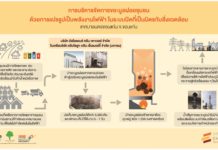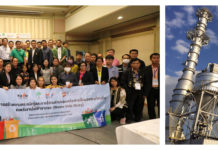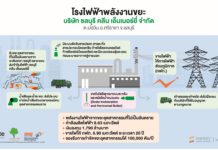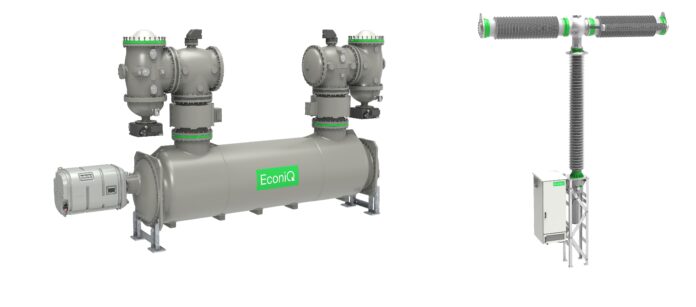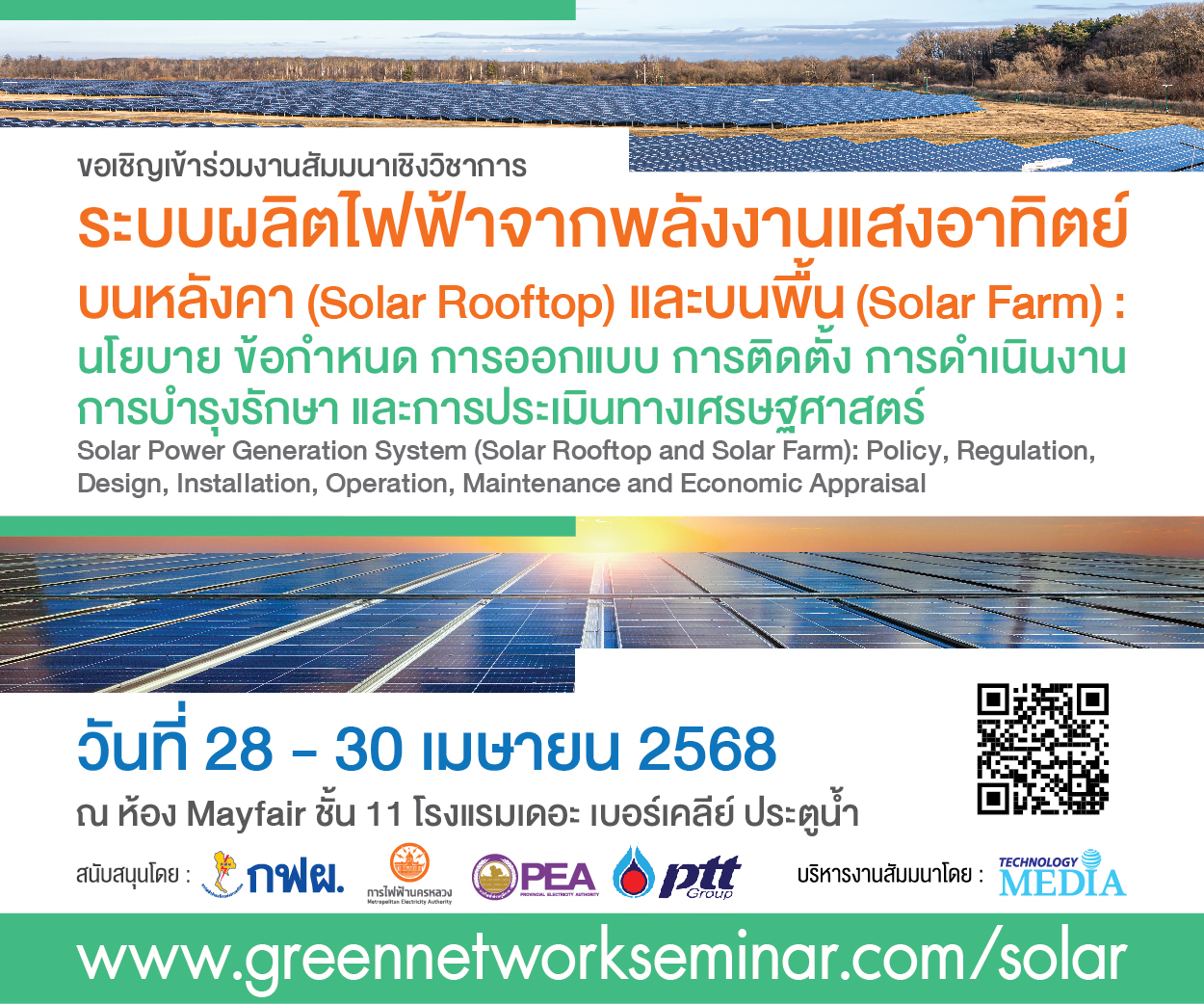Innovative switchgear enables the phaseout of SF6, a greenhouse gas 24,300 times more potent than CO2,staying in the atmosphere for over 1,000 years.
- Power grids rely heavily on SF6, the planet’s most potent greenhouse gas, contributing 80 percent of overall SF6 emissions.
- As electricity demand soars and grids are expanded to integrate renewables, the high-voltage switchgear market is projected to grow by 140 percent, reaching $60 billion by 2050.
- Hitachi Energy launches the world’s highest-voltage SF6-free switchgear, replacing the greenhouse gas in the voltage range where most of it is used
Zurich, Switzerland, Aug. 22, 2024 – Hitachi Energy, a global technology leader, is launching today a new technology that will tackle emissions of sulfur hexafluoride (SF6), 80 percent of which come from the power sector.
Sulfur hexafluoride (SF6) is widely used in switchgear, the critical components protecting our power grids and delivering the energy transition in a time of extraordinary grid expansion. It is 24,300 times more climate-hostile than CO2 and remains in the atmosphere for over a thousand years – much longer than CO2, which lasts less than 200 years. Overall, it makes up 220 million tons of CO2 equivalent or 0.6 percent of global emissions. To put it into perspective, this exceeds the equivalent of 50 typical coal power plants.
While high industry standards mean that leaks are minor and accidental releases of SF6 rare, private stakeholders and regulators alike are reluctant to continue using SF6, a gas they see as a significant environmental threat and liability.
To help the power sector tackle this huge problem, Hitachi Energy has launched the world’s highest voltage SF6-free switchgear – the EconiQTM 550 kV circuit breaker that can be used in gas-insulated switchgear (GIS) or dead tank breakers (DTB) and the EconiQ 420 kV Live Tank Breaker (LTA).
This equipment will replace SF6 switchgear around the world, including in China, which is the source of 57 percent of the global SF6 emissions. Each new 550 kV GIS substation using EconiQ eliminates the carbon equivalent of 170 fully booked jumbo jets flying from Paris to New York while retaining the size, performance, and reliability levels of traditional switchgear.
Markus Heimbach, Executive Vice President and Managing Director of the High Voltage Products business unit at Hitachi Energy said: “It’s hard to overstate the critical role that this little-known gas plays in keeping the lights on – it has been as central to building our modern world as steel and concrete.”
“This makes SF6 exceptionally challenging to phase out. The industry can only overcome the dual challenges of strict SF6 regulations and rising transmission demands with solutions that eliminate this gas without sacrificing size or performance. Our new EconiQ technology is the first to meet this critical need. Hitachi Energy is the first to have come up with sustainable products for this voltage level, where the largest portion of SF6 is used.”
“As the world shifts to a sustainable energy future, so must power systems. With switchgear typically in service for 40 years, it’s important to act fast, as decisions taken today will determine the success of Net Zero in 2050.”
As the industry’s only SF6-free solution for these voltage ratings, Hitachi Energy’s new offerings maintain the same footprint, dimensions, compatibility, lifespan, safety, reliability, and efficiency as traditional SF6 equipment. This allows utilities and operators to plan SF6 phaseout roadmaps, enabling them to swap components, retrofit or replace old switchgear and install new ones with no new construction requirements, and with only minor technical changes and minor new training needs.
Around 1,300 tons of SF6 is used in the UK’s network of substations alone, with more than 10,000 tons used in the European Union. This leaves power grid operators to focus on two pressing challenges: delivering the energy transition and addressing climate change. The former demands a rapid expansion of grid infrastructure like switchgear, while the latter necessitates an urgent phaseout of SF6.
The European Union has already implemented a strict phaseout and banned SF6 in medium and high-voltage switchgear by 2030 and 2032, respectively. The UK and USA are preparing similar regulations.
SF6-free switchgear in action
Both new EconiQ products have pilot orders confirmed and form part of ambitious climate commitments from utilities, demonstrating the need for SF6-free products at this voltage.
TenneT, the Dutch-German transmission system operator responsible for over 25,000 km of high-voltage lines and cables, has placed an order for Hitachi Energy’s new EconiQ 420 kV LTA. TenneT plans to use the new infrastructure to support its ambition of reducing grid losses, along with the climate impact of its own operations.
SSEN Transmission, one of Europe’s fastest growing network businesses with ambitious plans to invest £20 billion in the north of Scotland electricity transmission network to support UK and Scottish energy security and clean power targets, has placed an order for the new generation EconiQ 420 kV LTA. The new order supports the company’s strategy to no longer install equipment containing SF6 wherever viable. These are part of the company’s wider decarbonization ambitions, having been the world’s first transmission network accredited by the Science Based Target initiative for its carbon reduction targets, which are consistent with Net Zero pathways.
Rob McDonald, Managing Director of SSEN Transmission, said: “We are delighted to collaborate with Hitachi Energy and order some of the world’s first SF6-free 420 kV AIS circuit breakers, which is a testament to our position as a leader in the adoption of SF6 alternatives. The use of the technology is a key enabler to ensure we meet our ambitious grid expansions plans for 2030 and beyond, as well as our science-based carbon reduction target. The equipment will be used for a substation upgrade project in the north of Scotland which will reinforce the local network and allow for the connection of several onshore wind farms, contributing to UK Net Zero targets.”
In North America, where the 550 kV voltage is common, two customers have also placed orders for the new EconiQ 550 kV DTB, Hydro One and Wesco.
Hydro One Limited, through its wholly owned subsidiaries, is Ontario’s largest electricity transmission and distribution provider with approximately 1.5 million valued customers, approximately $32.8 billion in assets as of December 31, 2023, and annual revenues in 2023 of approximately $7.8 billion. Hydro One expects this partnership to contribute to its climate change mitigation initiatives to achieve net-zero GHG emissions by 2050.
Wesco is based in Pittsburgh, Pennsylvania, and has remained committed to powering progress around the world since the rise of electrification in the early 1900s to the digital revolution of today, delivering ingenuity and expertise to approximately 150,000 customers worldwide. The EconiQ eco-efficient 550 kV dead tank breaker will enable Wesco to fulfill its customers ambitious sustainability goals for 2030 and beyond.
Jim Cameron, Wesco’s Executive Vice President and General Manager of its Utility and Broadband Solutions business unit, emphasized Wesco’s dual commitment to sustainability. He stated, “We are dedicated to minimizing the environmental impact of our operations and assisting our customers in achieving their sustainability goals. The groundbreaking technology of Hitachi Energy’s EconiQ 550 breaker, which reduces SF6 emissions, aligns perfectly with our corporate sustainability charter. We are proud to be part of the first installation in North America.”


















